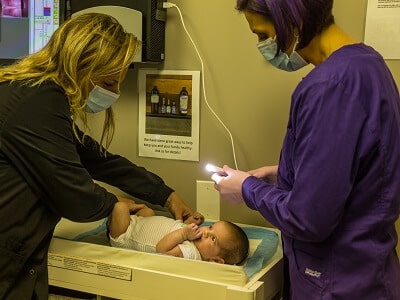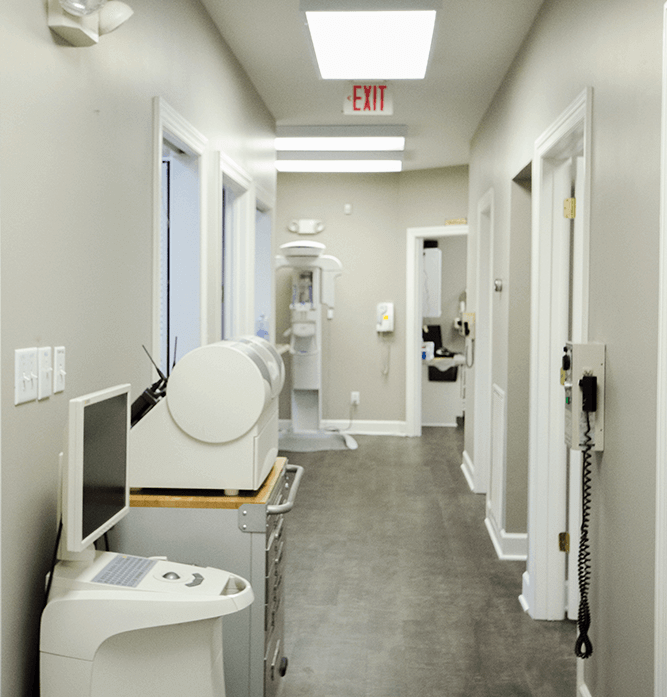
Airway Centered Dentistry – Franklin, TN
Breathe Easy & Smile Brightly
Dr. Paige Prather is dedicated to the oral health and the overall physical well-being of her patients. Airway Centered Dentistry in our Franklin, TN dental office focuses on addressing a wide range of concerns that impact the oral health and everyday quality of life of patients of all ages.
The science of Airway Dentistry is a more comprehensive approach and is constantly evolving. Some important aspects include how we breath, sleep, digest and other oromuscular dysfunctions. The mechanics of natural breathing rely on an open airway that is supported by stable oral health, functional jaw joints, and unrestricted airflow through our nasal passages. When a component of this natural process is compromised in some way, it can lead to health effects that are often chronic. As a dentist, Dr. Prather has an in-depth understanding of the supporting structures and muscles in the mouth and throat that facilitate airflow. She has advanced training in the diagnosis of sleep disorders and a range of therapies and treatments for children and adults.
What is Airway Dentistry?
Treating the effects of sleep issues as early as possible is important for healthy growth and development in children. In adults with sleep problems, treatment is designed to resolve symptoms, restore improved oral health, and overall physical wellbeing.

WHAT CONDITIONS MAY BENEFIT FROM AIRWAY DENTISTRY?
Dr. Prather uses the airway-centered approach to treat a growing list of oral and overall health concerns that can be tied to sleep issues. The following may be some conditions that may indicate the need for airway assessment.
- Problems nursing\taking a bottle
- Snoring
- Behavioral problems
- Bedwetting
- Chronic allergies
- TMJ Pain
-
Sleep disturbance
(restlessness/waking in the night) - Headaches
- Food sensitivities/aversions
- Digestive upset
- Tooth grinding
Airway Assessments
Dr. Prather works with adult and pediatric patients to evaluate their breathing and the structure of the jaw and palate. Using a range of therapies or treatments to restore better breathing and sleep is the key to addressing problems with lasting results. Airway dentistry could minimize the need for a pharmaceutical approach to behavioral problems such as ADHD. It is important to have a complete and thorough assessment to determine potential contributing factors. In addition to a visual and functional physical assessment Dr. Prather performs 3D airway mapping to assess the structures of the nose and throat. Dr. Prather also conducts home sleep testing to assess for OSA and UARS. You can complete the study in the comfort of your own bed and have a diagnosis by a certified sleep physician. For young children Dr. Prather uses a sleep screener. This can provide valuable information to guide treatment and enable for the most productive outcome. Even in adult patients teeth grinding can be a sign of airway issues. In these cases the sleep screener can provide information a traditional sleep study may not. With the newest technology Dr. Prather can also do occlusal bite mapping to track tooth wear over time and use this as a possible indicator of airway compromise.
It seeks to address airway structure problems using a variety of treatments based on the individual patient need. Some of these include oral appliances, functional orthodontics, myofunctional therapy, breathing retraining, sleep hygiene and release of tethered oral tissues.
WHAT IS OBSTRUCTIVE SLEEP APNEA?
WHAT IS OBSTRUCTIVE SLEEP APNEA?
Common signs of sleep apnea can include:
Common signs of sleep
apnea can include:
♦ Snoring or waking up gasping for air
♦ Dry mouth upon waking
♦ Increasing irritability or moodiness
♦ Difficulty concentrating
